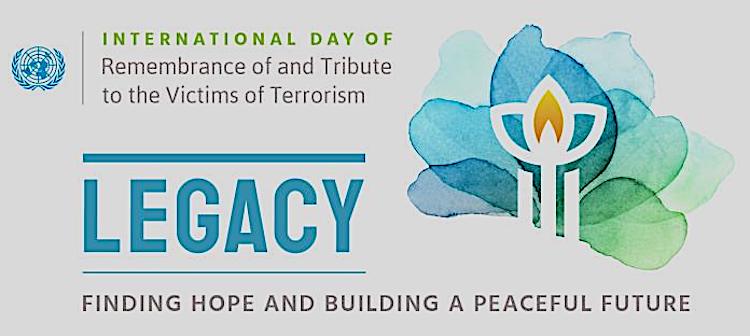
Credit: United Nations – Photo: 2023
By Thalif Deen
UNITED NATIONS. 21 August 2023 (IDN) — A former UN Ad Hoc Committee chairman to Eliminate International Terrorism once predicted the UN will never agree on a definition of terrorism because “one man’s terrorist is another man’s freedom fighter”.
As someone rightly remarked: to the Indians, it is the Muslims in Kashmir; to the Russians, it is the Chechens; to the Israelis, it is the Palestinians and vice versa; and to the Chinese, it is Uighurs in Xinjiang Province.
Since the Committee was created in 1996, there has been no consensus on who constitutes a terrorist.
The Committee was also mandated to elaborate an international convention for the suppression of terrorist bombings and, subsequently, an international convention for the suppression of acts of nuclear terrorism.
This mandate has continued to be revised and renewed annually by the General Assembly in its resolutions on the agenda item “Measures to eliminate international terrorism.”
Responding to a question, AI Chatbot GPT said efforts to agree on a comprehensive definition have faced challenges due to concerns about the potential misuse of such a definition for political purposes or to suppress legitimate dissent.
“Despite this, the UN has taken several steps to address terrorism, including the adoption of various conventions and resolutions to combat terrorism and its financing”.
According to a backgrounder from the UN, acts of terrorism propagating a wide range of hateful ideologies continue to injure, harm and kill thousands of innocent people each year.
Despite international condemnation of terrorism, victims and survivors of terrorism often struggle to have their voices heard, their needs supported, and their rights upheld.
“Victims often feel forgotten and neglected once the immediate aftermath of a terrorist attack fades, with profound consequences for them. Few Member States have the resources or the capacity to fulfil the medium and long-term needs of victims of terrorism to enable them to fully recover, rehabilitate and re-integrate into society”.
Most victims can only recover and cope with their trauma through long-term multi-dimensional physical, psychological, social and financial support.
The UN’s 193 Member States have the primary responsibility to support victims of terrorism and uphold their rights.
A darker side to the fight against terrorism
Meanwhile, a new study by a UN expert, released last June, provided a darker side to the fight against terrorism.
The study warned that human rights violations against civil society are directly linked to counter-terrorism practices and measures to counter violent extremism in every region across the world.
“Civil society across the globe is suffering death by a thousand cuts through the cumulative impacts posed by overlapping and intertwined practices, including vague and imprecise laws on counter-terrorism and preventing and countering violent extremism, physical, digital, and judicial harassment, and administrative measures like sanctions and dissolutions, reprisals and intimidation,” said Fionnuala Ní Aoláin, the UN Special Rapporteur on Counter-Terrorism and human rights.
The UN expert launched the Global Study on the Impact of Counter-Terrorism Measures on Civil Society and Civic Space on the sidelines of the Third United Nations High-Level Conference of Heads of Counter-Terrorism Agencies of Member States in June.
“The study documents restrictions and human rights violations against civil society that are directly linked to the regulatory and institutional practices of counter-terrorism and preventing and countering violent extremism in every region across the world,” Ní Aoláin said.
Ni Aolain’s study found “unrelenting misuse and abuse of counter-terrorism and P/CVE (Preventing violent extremism and countering terrorism) against civil society, as well as discrete instances of good practice mainstreaming human rights and meaningfully engaging with civil society.”
The study urges consolidated action by Member States, the UN, the private sector, and other stakeholders.
“The UN and Member States have collective interests in maintaining the integrity of the UN Charter, and this study provides both the evidence base to end the status quo, as well as concrete recommendations to remedy globally evidenced human rights deficits in approaches to counter-terrorism and P/ CVE,” the UN expert said.
The United Nations says it has an important role in supporting Member States to implement the UN Global Counter-Terrorism Strategy by standing in solidarity and providing support to victims of terrorism; offering capacity-building assistance; establishing networks; and offering support to civil society organizations, particularly victims’ associations; and encouraging Member States to promote, protect and respect the rights of victims of terrorism.”
The United Nations provides technical assistance and capacity-building to Member States and victims’ associations to better address the needs of victims of terrorism.
The Legacy Project
On 21 August, the UN commemorated the sixth anniversary of the “International Day of Remembrance of and Tribute to the Victims of Terrorism” by organizing a virtual high-level event focused on the theme “Legacy: Finding Hope and Building a Peaceful Future”. The theme was chosen following consultations with terrorism victims, survivors, and victims’ associations.
As part of the activities to mark International Day, the United Nations Office of Counter-Terrorism (UNOCT) has launched the “Legacy Project”, a documentary gallery on Instagram featuring victims and survivors of terrorism from across the world who share their stories.
The Legacy Project seeks to pay tribute to those whose lives have been lost or forever transformed by terrorism and to reach out to new generations to deepen and transform their understanding of the long-lasting impact of terrorism.
An accompanying exhibition currently on display in the Visitor’s Lobby of the United Nations Headquarters in New York features 17 life-size images of victims and survivors of terrorism.
Showcasing their “Memories” through meaningful personal objects, the exhibit provides a snapshot of the resilience and legacy of each victim and survivor of terrorism. The exhibition can be visited until 1 September 2023. [IDN-InDepthNews]
Photo Credit: United Nations
IDN is the flagship agency of the Non-profit International Press Syndicate.
